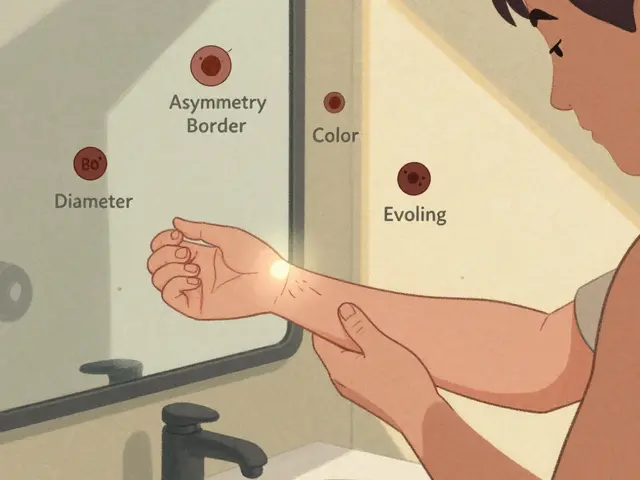Accutane experience: what to expect and practical tips
Thinking about Accutane (isotretinoin) or already on it? People often expect dramatic results — and they can get them — but the road includes dry skin, labs, and strict pregnancy rules. Here’s a straightforward, practical guide from dosing and timelines to daily skincare and safety checks.
Timeline, dose and common effects
Treatment usually lasts 4–6 months. Most doctors aim for a total cumulative dose around 120–150 mg/kg, which often translates to 0.5–1 mg/kg per day. You may see a worse breakout in the first few weeks, then steady improvement by month 2 or 3. Many patients notice big changes by month 4 and long-term clearance after the full course.
Common side effects you’ll likely feel: very dry lips and skin, dry eyes, nosebleeds, and increased sun sensitivity. Some people get joint or muscle aches, temporary hair thinning, or changes in mood. Labs can show higher triglycerides or liver enzymes — that’s why baseline blood tests and monthly checks are standard.
Daily care and practical tips
Skincare on Accutane should be gentle and consistent. Use a mild, non-foaming cleanser once or twice daily and a thick, fragrance-free moisturizer right after washing. A high-quality lip balm is essential — carry it everywhere. For eyes, preservative-free artificial tears can help with dryness. Avoid harsh scrubs, physical exfoliants, and strong topical retinoids while on treatment; they add unnecessary irritation.
Sun protection matters more now. Wear SPF 30+ every day and reapply when outdoors. Avoid waxing and aggressive laser, chemical peels, or dermabrasion during treatment and for several months after — skin heals differently while on isotretinoin.
Watch what you take with Accutane. Don’t use vitamin A supplements (risk of overdose) and avoid tetracycline antibiotics at the same time because of a rare risk of increased intracranial pressure. Tell your prescriber about all meds and supplements.
Pregnancy risk: isotretinoin is highly teratogenic. Most programs (like iPLEDGE) require two forms of contraception, negative pregnancy tests before and during treatment, and avoiding pregnancy during treatment and for one month after stopping. Follow your prescriber's exact schedule — this isn’t optional.
Mental health talk: some people report mood changes. Track your mood, sleep, and energy. If you notice new depression, suicidal thoughts, or severe mood swings, contact your prescriber or emergency services immediately. Don’t downplay these signs.
Final practical notes: keep your monthly lab appointments, take the lowest effective dose, and be patient — clear skin often takes time. Bring questions to your dermatologist: dose adjustments, how to handle flares, and realistic expectations. Accutane can be life-changing, but safe use relies on good care and clear communication with your provider.

- May 23, 2025
- Posted by Cillian Osterfield
Accutane: Everything You Need to Know About Results, Side Effects, and Real Stories
Accutane, a strong acne treatment, often sparks curiosity and concern. This article breaks down how it works, what to expect, side effects, and tips for getting through a course. Real stories, practical advice, stats, and all the info anyone needs before starting or during Accutane—delivered in a straightforward, human way.
Categories
- Health and Wellness (72)
- Medications (69)
- Health and Medicine (28)
- Pharmacy Services (12)
- Mental Health (9)
- Health and Career (2)
- Medical Research (2)
- Business and Finance (2)
- Health Information (2)
Latest Posts
©2026 heydoctor.su. All rights reserved





